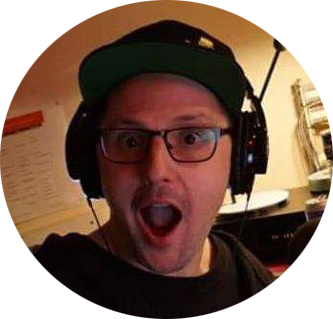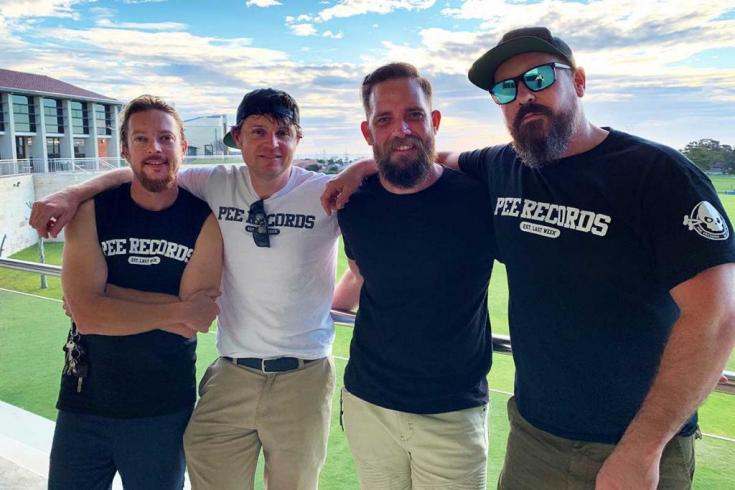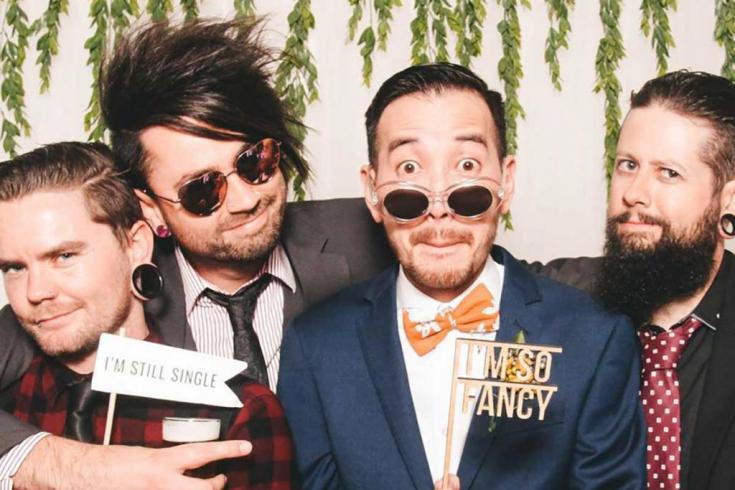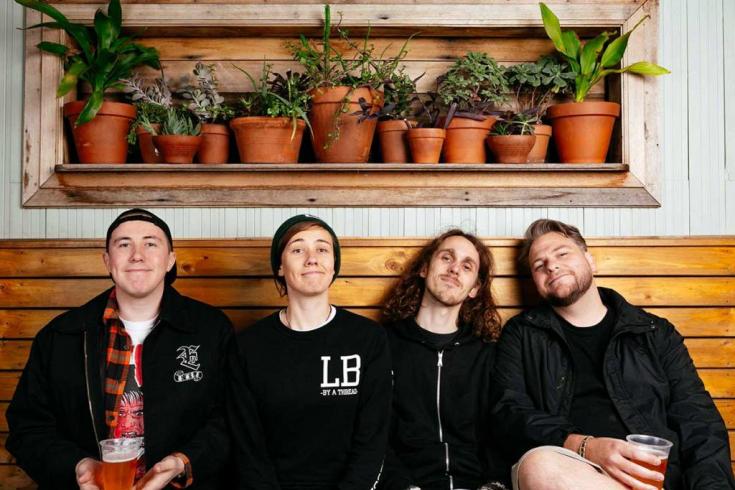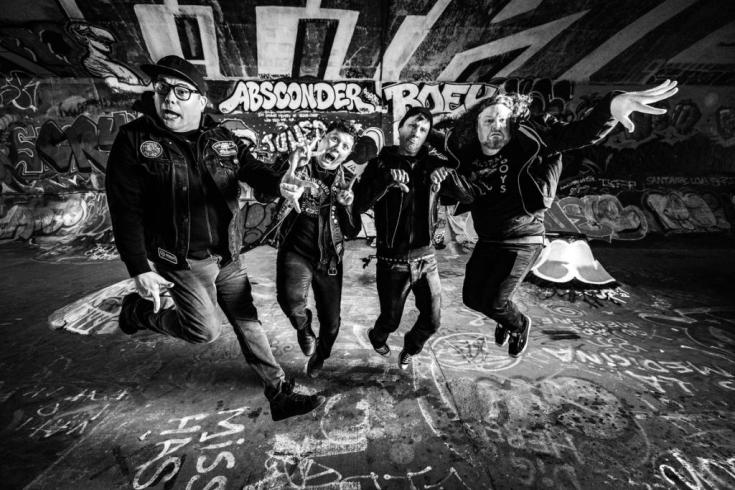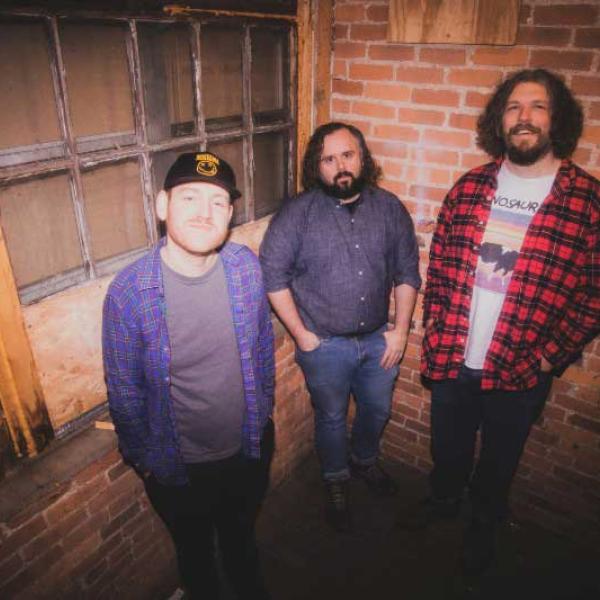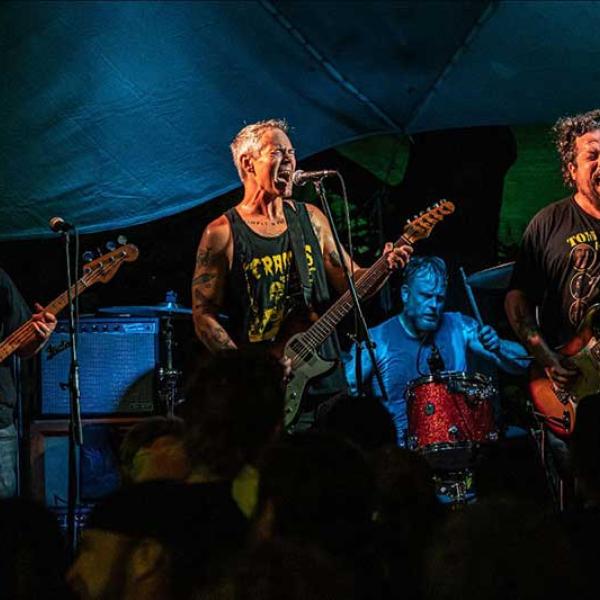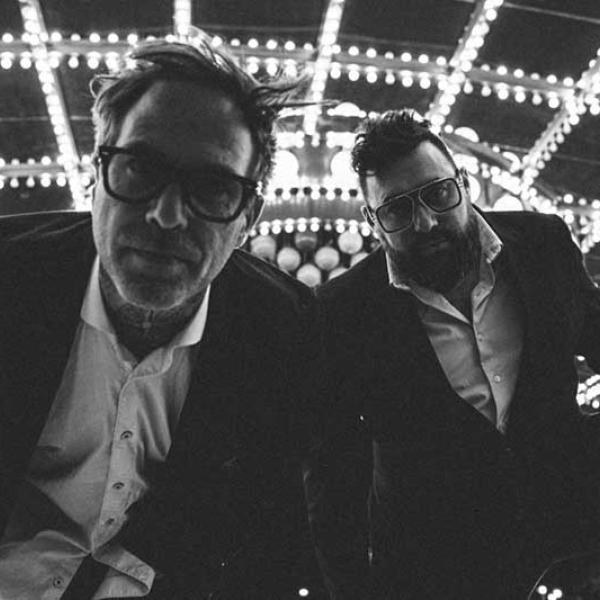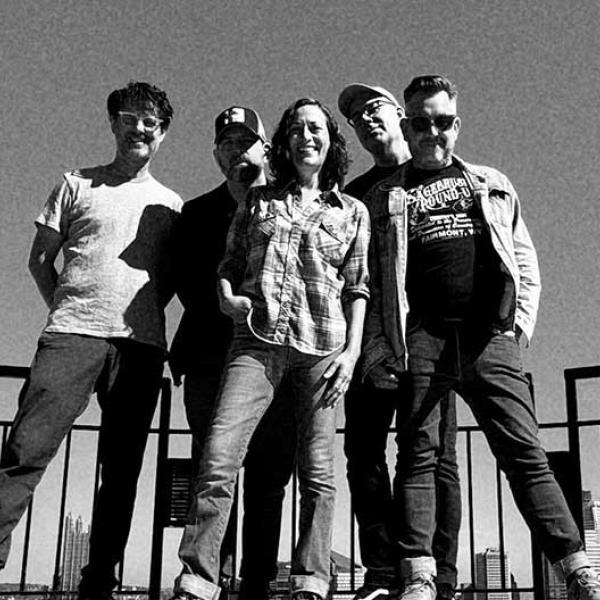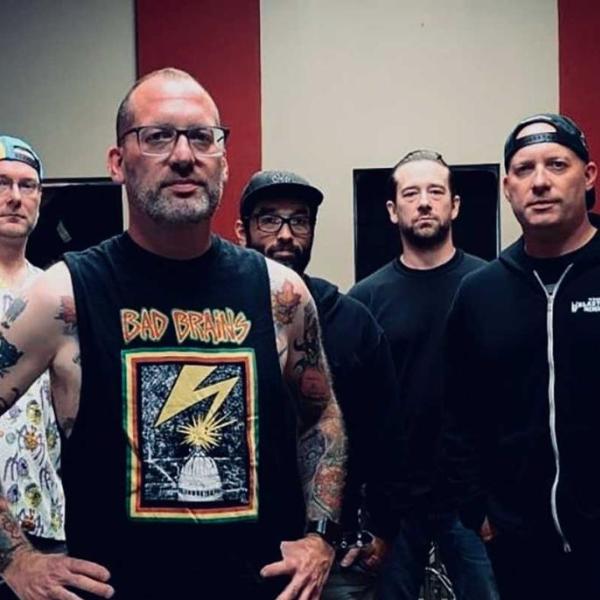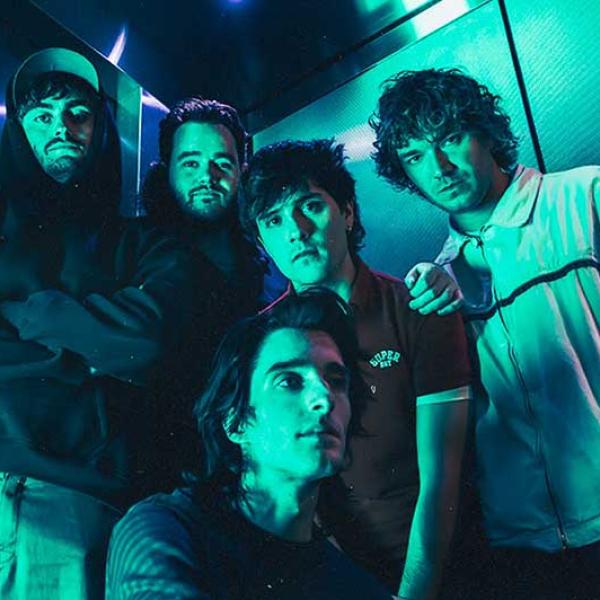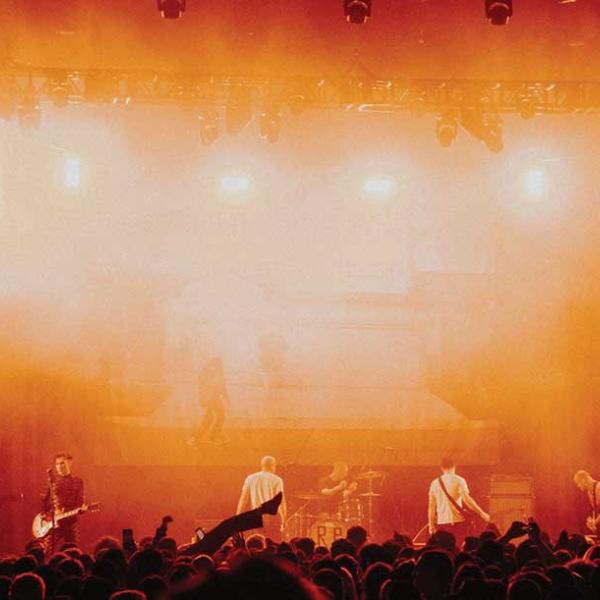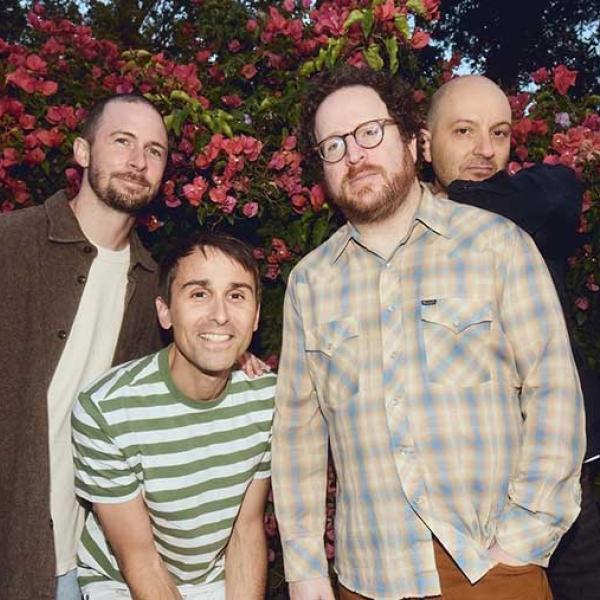Features
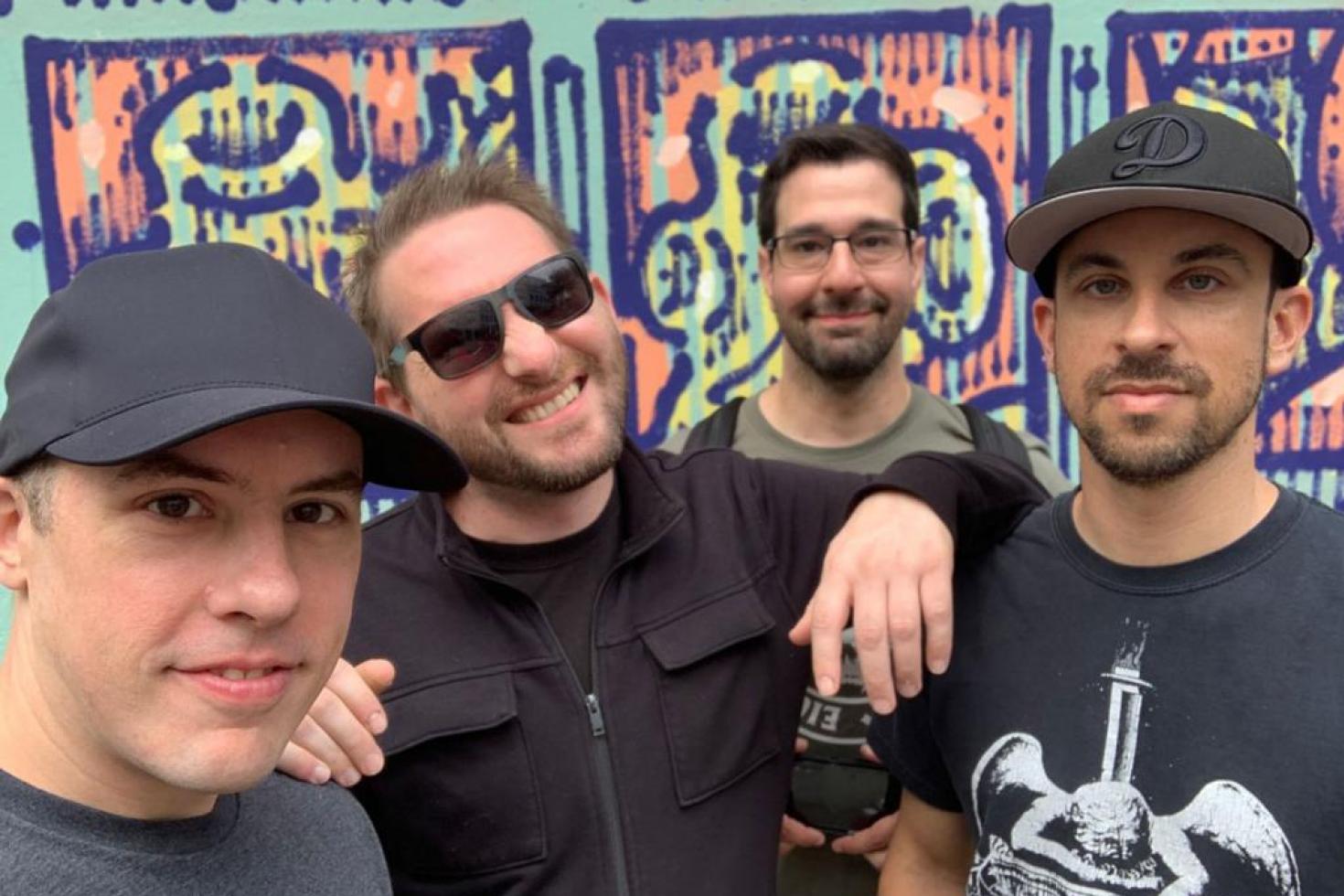
Much The Same started in Chicago in 2001 under the name Don’t Look Down, went through a couple of line-up changes and then grew up quickly signing to A-F Records for their first full-length record and then to Nitro for ‘Survive’. Unfortunately, the scene kind of fall apart around the time ‘Survive’ was released with emo taking over, leaving punk rock behind in its dust. The band broke up without having any clue of what the future was holding. But when something is just too good, there is no holding it back.
Fast-forward thirteen years.
After releasing an excellent new record in the form of ‘Everything Is Fine’ and a bunch of tours, Much The Same is back at it with a completely remixed and remastered version of their debut album, ‘Quitters Never Win,’ out now on vinyl for the first time thanks to a couple of incredible indie labels. We sat down virtually with Chris McGrath, singer and guitarist of Much The Same, to talk about that album.
PRT: First of all, I wanted to ask, the last time we spoke was in 2019 and it was around the time of the release of ‘Everything is Fine’. How do you feel about the reaction of the fans a year and a half later?
Chris: I’m very happy about it. The whole process, at least for me personally, was a challenge just to see if we still had it in us to write another record--if we can write good songs. I honestly wasn’t sure ‘cause I would go back and listen to the old stuff and say I don’t even remember how I came up with half of these ideas. I don’t know if it will happen again. I heard a lot of people have said that it’s their favorite record of ours, so I guess that’s a win, right? It feels really good.
PRT: When you listen to all your albums chronologically, it feels like ‘Everything is Fine’ came out very naturally as the logical next step, sounding like a more mature version of the band. It really is a beautiful and touching album that feels positive, even if the lyrics aren’t always equally positive. Is there a lot of pain in that record?
Chris: I’m not sure how we do that. People keep on telling us we’re a positive band and I always think of our songs as angry. We do have a positive outlook on things, which makes its way into the songs, even if it’s not a positive song. There is one song at the end of ‘Everything’ we can say is positive. Everything else seems like a huge downer. But I like that there still is positivity that comes through.
PRT: I’m sure when you wrote those things down it was more like therapy and you were not thinking about whether or not people would see them as a happy song.
Chris: Yeah, right. You know, I did not write any of the lyrics on this album personally, but Dan who wrote most of them went into the details and the metaphors about what they all meant. It’s interesting as I think of what it meant. It’s not unusual to hear songs about complaining about a breakup or you know, talking about depression or all that kind of stuff. But what’s the difference between a song about those topics that feels negative or positive? It’s really hard to define how that is even when the outlook isn’t particularly positive. But if songs have been written in a way that is therapeutic, I guess it’s not so much about ‘I hate you’ but to try to find a way to deal with that negativity. I think everybody experiences that stuff and again, I didn’t write these songs, but I have been very aware these past two or three years just how valuable it is to be able to express the full range of emotions. How that is important for mental health to have an outlet, to be able to say the kind of stuff that you feel and not hold all that inside. In that way, even if the songs are not positive, it feels like it’s a positive experience to get it all out there.
PRT: It is so beautiful to take something negative and change it into something positive. Especially with everyone facing such a weird time right now. What is it like in your state right now with the pandemic?
Chris: So, I’m in Chicago and I just read today that Illinois is one of the best states right now in terms of how it’s dealing with the pandemic and reducing the total number of cases and everything. It’s funny because Chicago is up in the top corner of the state and I hear that elsewhere - the majority of the state is kind of farmland and stuff - a lot of people believe it’s a hoax and they don’t cooperate. But up here I haven’t seen a single person not wearing a mask in weeks, unless they are walking by themselves. It stinks because you know, we’ve been inside for months and we’re still inside. This is my week off work and we’re not going anywhere and not doing anything. We don’t even go out to a restaurant even if they are open. I just don’t see the point as much as I’d like to get out and see my friends. To me, the risk is not worth the reward because it doesn’t hurt me to stay home for a while longer. Anyway, it’s a boring summer and after that we’re hopefully going to get on with our lives. But it’s unfortunately not what we are experiencing here right now.
I was just telling somebody what I really miss is like when 9/11 happened, three thousand people died and the whole country banded together for ten years, Never Forget, all that stuff. And now we have had more Americans die than in WWI and everybody hates each other. It’s nuts how divided we are now. It’s a very sad and very weird time here. I mean, I grew up here always hearing about how America is the greatest country in the world. Which I’m sure every country has their own version of that. I doubt that everyone in the world thinks that America is the greatest country in the world, but you grow up and you hear that and you go ‘oh, I guess that must be true!’ And now, just looking at the past couple of years I think ‘I don’t want to be an American anymore.’ It’s terrible.
PRT: And then on top of that, you also have the protests against the tragic death of George Floyd, which are happening during the pandemic.
It is unfortunate that it happened when it did, but maybe it could only have happened when it did. The more liberal side of the spectrum was all about getting out and protesting and I support that a hundred percent. Maybe it’s a really unfortunate time to have to do that, but there are bigger things at stake here.
Somebody was saying how ‘none of you people had a problem coming out when it was for a protest’. But we did! You would not believe how many people would have been out there if we weren’t in the middle of a pandemic. Because this was the little version of what should have happened any other time.
I’m just at the point where I’m looking at things saying, ‘OK, I guess this is one of those things where we needed to expose all the bad that is going on.’ Stop letting us lie to ourselves. So we got two major things happening at once and it’s kind of exposing a lot of negativity that we all want to pretend doesn’t exist. Hopefully we can finally turn that around, but personally I don’t see the light at the end of the tunnel on that. It’s a scary time to be alive and raise kids and I hope they are going to grow up in a better world than we did.
PRT: ‘Quitters Never Win’ was released in 2003 just when everything was changing in the punk rock scene. What was it like for you guys at that time, having just recorded and released an album?
We had gone through a whole lot of member changes over the year before that. And the song ‘Quitters Never Win’ was me trying to talk myself into continuing to be a musician. Just because there seem to be so many roadblocks. I wasn’t entirely recognizing it at the time, but looking back, I realized I’m just very much a person where if something gets too hard, I just stop. I take something so far and if it’s like incrementally hard and I can get over it little by little, great. That’s how I developed a career in software. That just came easily to me. Music was, on one hand, I have a certain talent, and, on the other hand, there are a lot of skills involved just to learn how to play the guitar. It was a frustrating thing for me to be trying to make this thing work. In my head it was really simple and I had an ego - as we do when we are in our early twenties - and I just thought ‘you know what, I’m a good singer. I’m sure to be able to write some songs. They will be great. Everyone will love us’. But that wasn’t the case. It was a lot of work and it was just hard to get noticed. So yeah, that song was basically me going ‘Oh, I lost two more members now. Enough is enough. And maybe I’m done with this’. And that song came out and at the time, that was kind of the whole vibe for me: alright, I’m going to try one more song. Or: I’m going to try to find band members who I get along with and who are going to stick around. I mean, a lot of that was my problem too. I was probably a huge perfectionist. I want everything my way all the time, which causes me lots of problems in life and I’m sure I was exactly that way in the band then ‘cause I still kinda am. But either way, that was where I was at.
And yeah, in terms of a greater scene back then... there as a lot of stuff happening, especially in Chicago. Rise Against was coming up right around that time. We had a thriving local scene. The Lawrence Arms was getting bigger, Fall Out Boy started then. They were part of our local group of bands that would play together a lot. Plain White T’s was another one of those bands.
We were all just playing coffee shops back then. There were so many good bands at the time and a lot of them you never heard outside of Chicago. It was such an exciting time because you could throw a local show and sell out the Fireside Bowl or sell out the Metro, which is around eleven hundred people. To be able to get four local bands together of young kids and sell out an 1100 person venue, that was an incredible experience for us to be able to do that even if it was a lot of work. And then getting on A-F Records, particularly at that point in time, was a moment because Anti-Flag was getting bigger. They had Bush to complain about, which was a lot to complain about. In retrospect, it’s like wow... what were we so angry about? Compared to Trump, Bush seems like a reasonable person. But yeah, at the time we were all angry punks and that was valid. It was a very interesting time all-around to be doing what we were doing. I think I always lamented that it wasn’t 1995 cause our style of music was kind of getting mixed in with poppier punk bands and our kind of harder edge turned a lot of people off were into that other stuff. Which is fine. But when we finally got on tour it was like ok, there’s nobody here. And screaming was just coming up as well. So every band we played with was a screamo band. We would roll up to a town in Iowa and it would be us and screamo bands. Kids just weren’t interested in us. And it was weird. It was exciting locally but very difficult in a larger sense. But we kept going.
PRT: You guys are going to be at Red Bridge in Quebec in 2021 if everything gets back to normal. Any other plans already other than that?
I don’t know what’s going to happen with us right now. Red Bridge is the only thing we have right now. I don’t know what it is about Quebec or why Quebec is the place, but Quebec easily has one of the best punk scenes in the world. At least in my view, that’s the area that’s absolutely the best. There are a couple of other places in the world. Brazil is one of them. They are punk rock insane. All through South America really, but especially Brazil. But yeah, as soon as I heard about the first Red Bridge, I wanted to get on it. But the timing didn’t work for us at that time. We were really excited to be able to do it this year, it all got sorted out and then Covid happened. ‘Quitters Never Win’ was scheduled specifically to come out at Red Bridge. That was why we did it when we did it. So it’s a little disappointing to not have that happen, but everything was already in the works so we weren’t going to delay it a year. It is what it is and we’ll get it out there. We’re really looking forward to next year and glad that most of the bands that were supposed to be there this year are coming back next year. It’s going to be a good time and really nice get out there and do this thing again. I don’t know if we are going to remember how to play our songs after literally two years of not playing them together, but we’ll figure it out.

